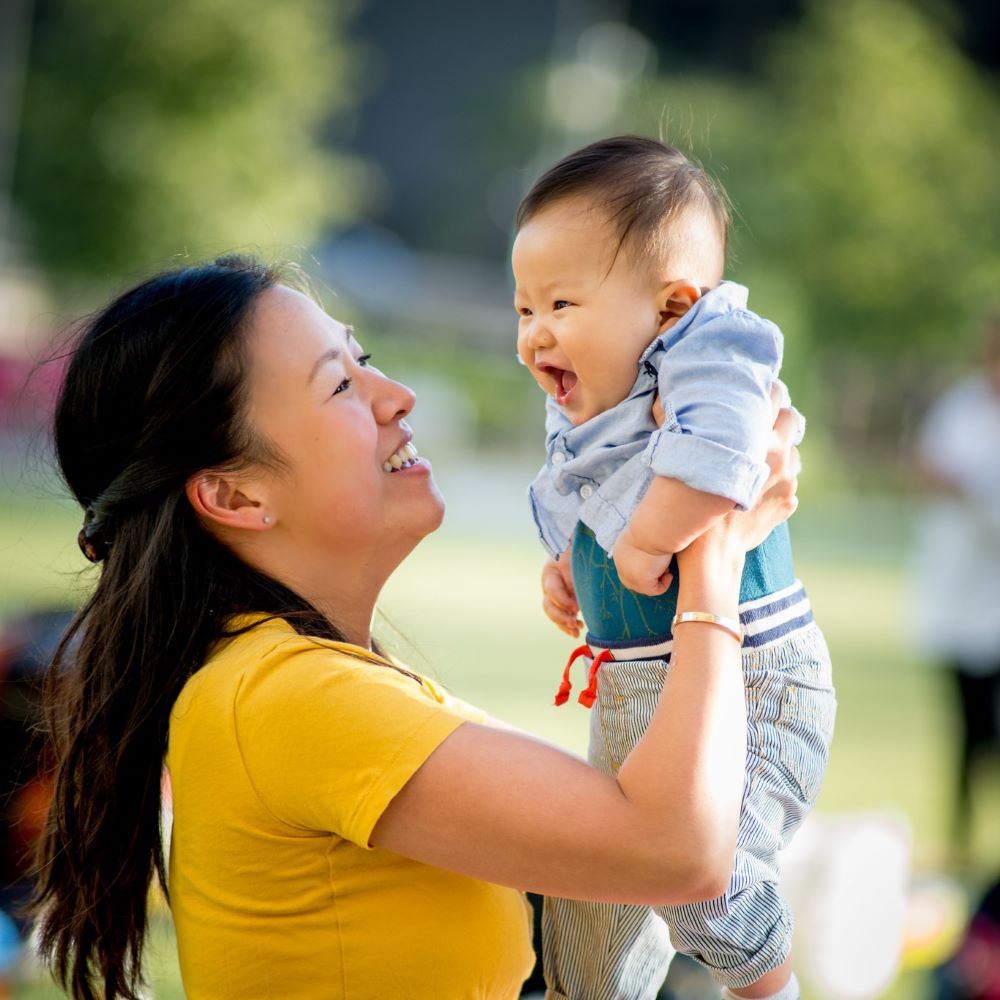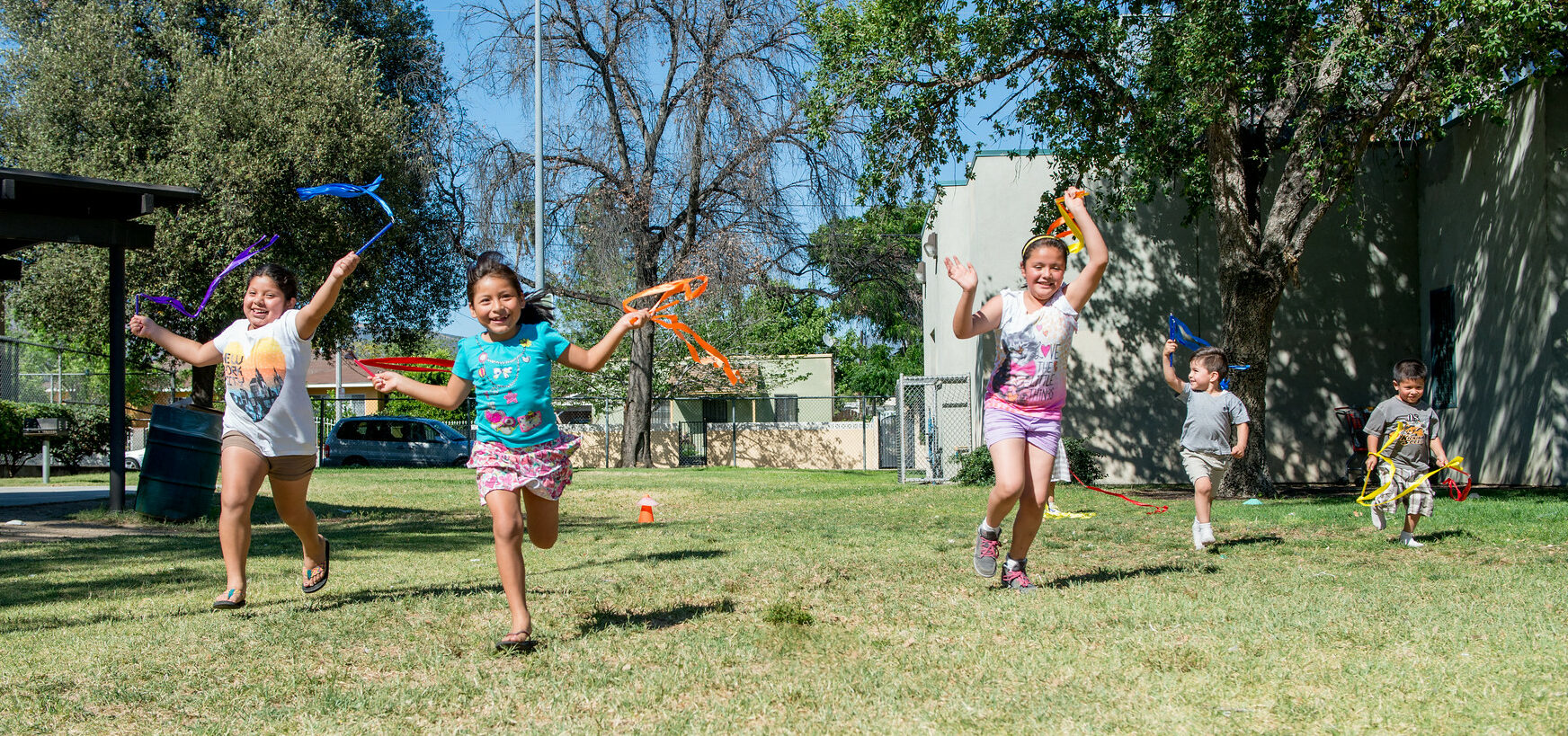
The Early Childhood Policy and Advocacy Fund
Launched in April 2023, the Early Childhood Policy and Advocacy Fund (EC PAF) is a grantmaking strategy implemented and designed in partnership with Community Partners. The EC PAF advances First 5 LA’s grantmaking practices towards First 5 LA’s newly refined overarching systems change goal: that public systems most critical to children’s development, prenatal to 5, advance belonging and justice for communities that experience significant inequities, to make systems more equitable and accessible, further community involvement in the development and implementation of policies, and ensure that the financing mechanisms of public systems incentivize a whole child, whole family, prevention-oriented approach.
Informed by lessons from First 5 LA’s former policy and advocacy grant making strategies, the EC PAF was created based on input from learning sessions held by Community Partners that engaged organizations, individuals, service providers, and parents from historically excluded communities with firsthand experience and expertise in children’s early development and the complex systems affecting family well-being played a pivotal role in shaping this initiative. Community Partners also conducted extensive research on historical trends and systemic racism deeply ingrained in U.S. policymaking concerning families and children to inform the design of the grants. This overarching design process has led to the creation of two separate grant pools that are part of the EC PAF:
- The Reimagining Systems Fund centers around organizations aiming to change public systems most critical to children’s development prenatal-to-5 and their families. These grants were awarded to 501(c)(3)s and fiscally sponsored nonprofit organizations, with an emphasis on those led by community members with lived experience of inequity.
. - The Community Opportunities Flexible Fund provides opportunities for emerging groups, volunteer efforts, and/or smaller organization to receive funding to build community connections and voice of the people most impacted by changes to systems affecting children prenatal to 5 and their families. This pool aims to provide increased flexibility around funding, and entails grants, stipends, contracts, honoraria, and related expenditures, awarded on a rolling basis with no deadline for applying.
The Reimaging Systems Change Fund and Community Opportunities Flexible Fund will be dispersed on a rolling basis over a five-year period (subject to fund availability) to various community-based organizations focused on L.A. County. Ersoylu Consulting will also conduct an evaluation of the grantmaking strategy.
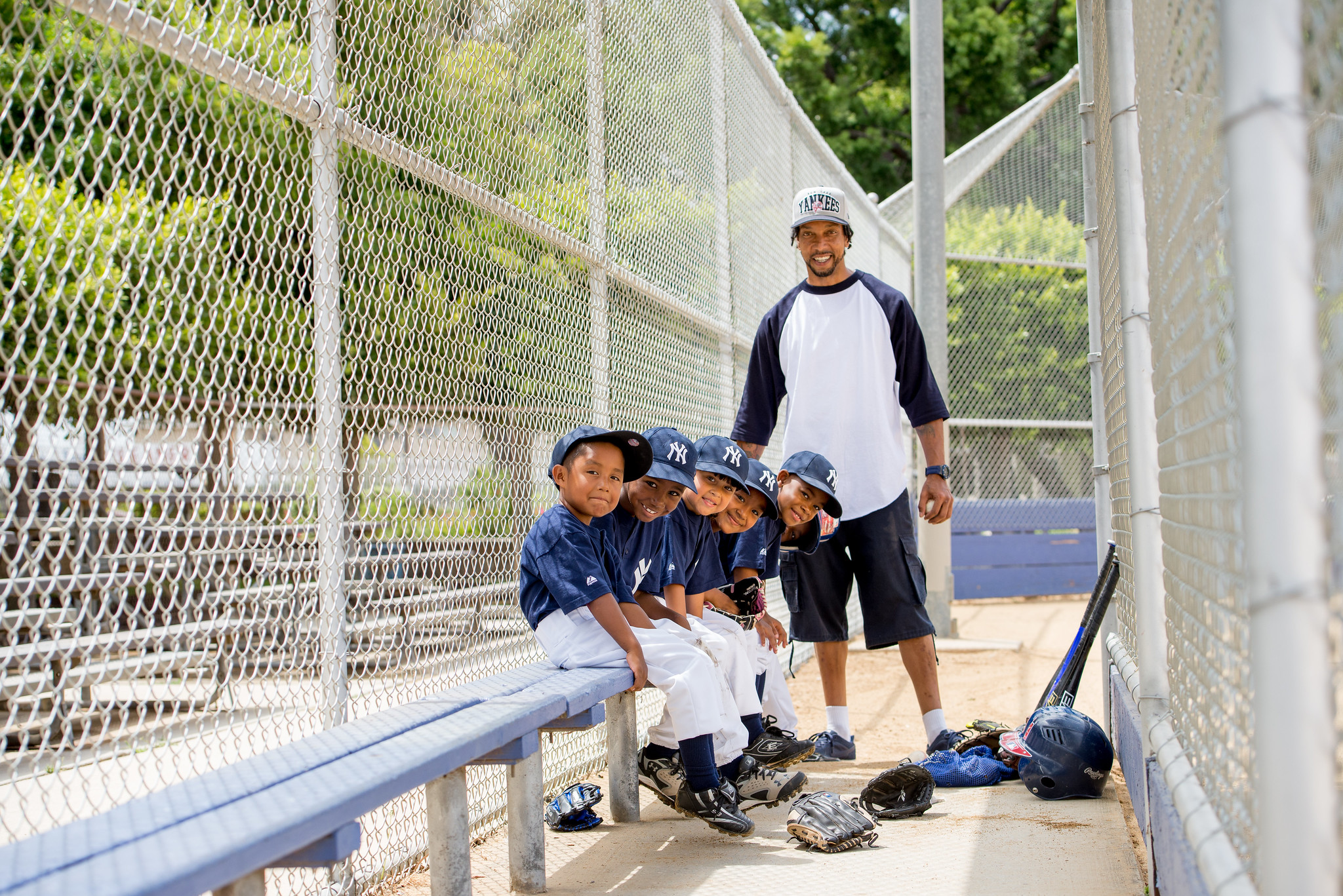
Partnership Goals
ECPAF includes the following primary outcomes, or longer-term policy, practice and systems change effects and impacts that will result from ECPAF efforts, given achievement of the project’s objectives: .
- Activating policy and practice changes at the local, state and federal levels that prioritize children ages prenatal to 5-years old as a special population and facilitate alignment and promote integration across family-serving systems.
. - Strengthening public systems that impact the full spectrum of child health and development, including the ability of young children to receive early identification and intervention supports, access early learning resources, and grow up in safe and nurturing environments.
. - Promoting effective family engagement with public systems and ensuring delivery of services and supports to children and families.
. - Creating self-sustaining policy changes and supporting movements that benefit children and families beyond the life cycle of ECPAF grantmaking. /
Evaluation: The Reimaging Systems Change Fund and Community Opportunities Flexible Fund will be dispersed on a rolling basis over a five-year period (subject to fund availability) to various community-based organizations focused on L.A. County. Ersoylu Consulting will also conduct an evaluation of the grantmaking strategy.
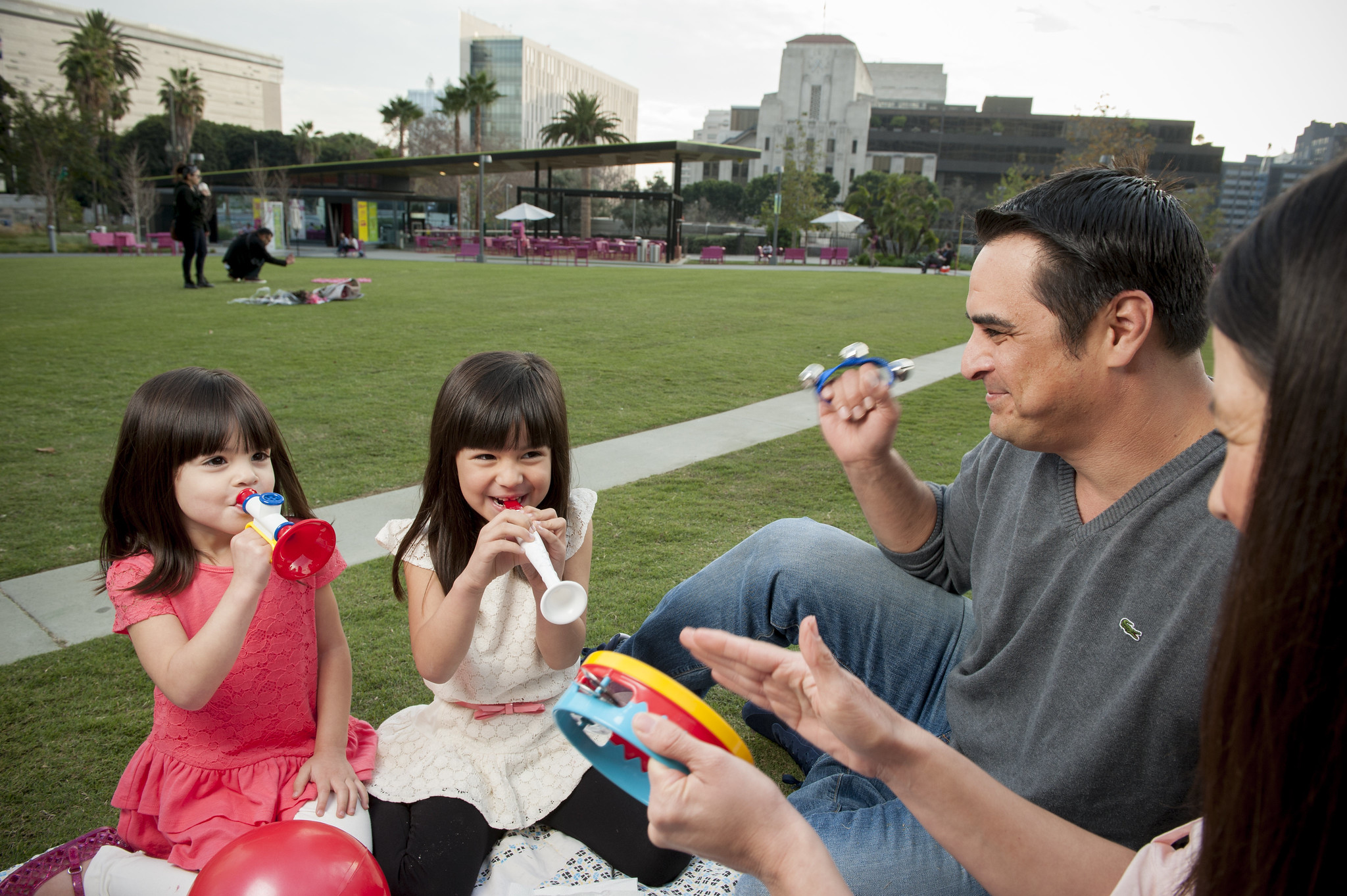
Grantee Spotlights
.

InnerCity Struggle (ICS) is dedicated to empowering the Eastside of Los Angeles and advancing justice, life opportunities, and dignity in the community. ICS is a member of the Whole Child Equity Partnership and focuses on implementing past victories and driving long-term campaigns in education, housing, and youth justice through a comprehensive multi-issue platform. ICS notes that the Eastside is a majority Latino population facing significant challenges, as inequities begin early in a child’s life, long before children enter school and structural racism disrupts family stability, child health, and overall well-being. As a result, ICS advocates for the development of a comprehensive system of services and resources designed to support the success and upward mobility of underserved children and their families, employing a whole-family approach to early care and education.
Funding received through the EC PAF will help ICS in state-level advocacy efforts, integrating ECE priorities into existing campaigns, and advocating for funding in budget advocacy work and increasing the active participation of ECE community stakeholders in the Eastside of Los Angeles, ensuring underrepresented voices have a platform to improve outcomes for young children and families.

The California Child Care Resource and Referral Network has long advocated on behalf of home-based child care providers, who have faced prejudice compared to formal, licensed care challenging discriminatory requirements such as English proficiency and marital status for licensing through our California Child Care Initiative Project (CCIP).
Through the funding received through the EC PAF, the network aims to increase and support family child care providers by addressing biases against license-exempt care, also known as family, friends, and neighbors (FFN) care. The network aims to shift the narrative and change mindsets around FFN care, redesigning systems and establishing new social norms by collecting data, amplifying the voices of families and caregivers, and advocating for policy changes that prioritize equitable outcomes and community aspirations. This is in order to integrate FFN care as an option in the referral process of child care resource and referral agencies rendering FFN care a visible option that can align with federal regulations and meet families’ needs.
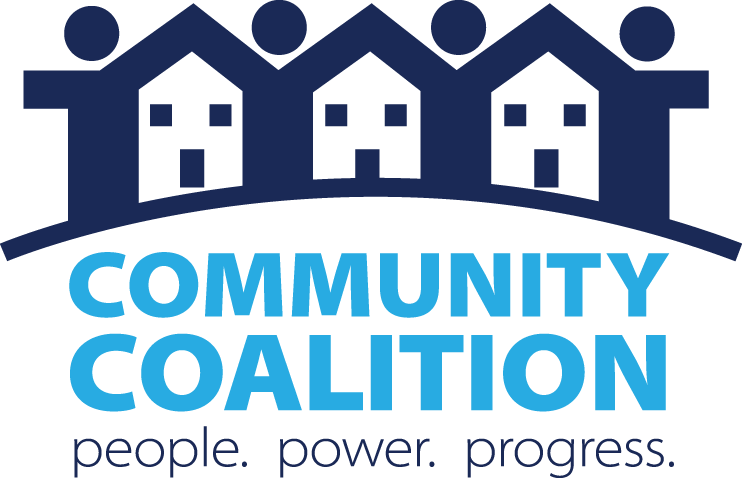
The Community Coalition for Substance Abuse Prevention and Treatment (CoCo) was established in 1990 to respond to the crack cocaine crisis, which disproportionately impacted families in South LA, causing significant community devastation due to disinvestment and ineffective government policies. Through organizing and engagement, CoCo empowers community members to improve conditions and promote equity using various strategies such as narrative change, arts/culture, and civic engagement to advocate for systemic change in South LA. CoCo amplifies the voices of those most affected by these issues in South LA and focuses on building resident leadership to advocate for resources and policy changes.
CoCo recognizes the importance of the “whole child, whole family” philosophy, understanding that the well-being of children is intricately tied to the well-being of their families. Their work in this area includes base-building, systemic efforts related to public assistance, and coalition building around spending priorities. This includes CoCo’s engagement with the Make LA Whole (MLAW) Coalition, a collaboration of over fifty civic, labor, community, civil rights groups, and LA residents, formed in 2021 to ensure equitable allocation of $1.3 billion in American Rescue Plan funds and support communities most impacted by the COVID-19 pandemic. The coalition continues to advocate for investments in women and families, including housing supports, family care, and guaranteed basic income. Additionally, CoCo is engaged in advocacy efforts around access to stable housing to support families and ensure the safety and security of young children, elevating this priority of South LA residents through housing justice campaigns and initiatives to address affordable housing and homelessness in these neighborhoods.
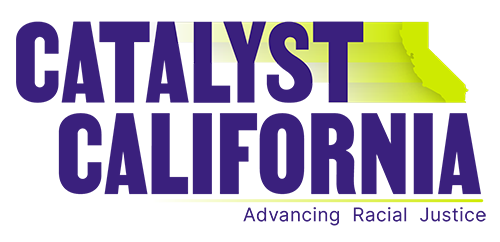
Catalyst California seeks to dismantle racial injustice and redesign systems for access and equity by shifting and building power with movement leaders in communities of color who are making real change. Since 2019, Catalyst California has convened the Whole Child Equity Partnership (WCEP), comprised of organizations with experience and expertise in issues that impact the learning, health and well-being of children of color in California.
In focusing on children ages prenatal to 3 years old within their policy agenda, Catalyst California aims to advance policies, investments, and lead narrative change for more equitable and accessible whole child systems of support and reimagine structures and systems via policy advocacy and implementation to ensure that families that have faced historic barriers and systemic racism are benefiting from these measures. This includes advancing strategies that promote healing and long-term asset building for children, families, and communities most impacted by institutionalized anti-Black racism, elevating community-centered, culturally and linguistically affirming solutions in health, education and social systems, and uplifting community strengths and leadership to meet the needs of children and families.

Since 1997, the Child Care Alliance of Los Angeles (CCALA) and its ten Resource & Referral and Alternative Payment agencies have worked to achieve racial justice in early care and education (ECE), influence child care policy both locally and federally, and deliver programs and resources at the neighborhood-level. CCALA has been a leader in uplifting and advancing the voices of the diverse ECE communities in LA County to ensure a child care system that meets their needs.
CCALA strives to advance child care as a fundamental human right, and seeks to connect families and the child care workforce within their communities to help influence policy, strengthen relationships with legislative members and administrative leaders, shape policy priorities, and enhance media relations to uplift the voices of those most impacted.
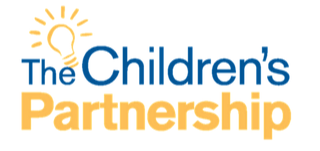
The Children’s Partnership (TCP) envisions a California where all children – regardless of race, ethnicity or place of birth – have the resources they need to grow up healthy and thrive, with a mission to advance child health equity through research, policy and community engagement, promoting policies that center the experiences of BIPOC families and are driven by community-informed research.
TCP co-leads the Whole Child Equity Partnership (WCEP) to advance family-informed policy priorities and support the healthy development of children prenatal to 5, leveraging long-term relationships with county partners to support systems change. TCP will work to strengthen family engagement, improve implementation, advance child-centered policies, and drive narrative change to build a movement for child health equity.
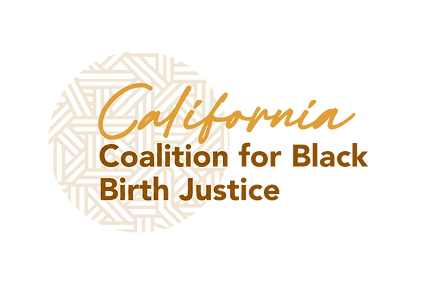 The California Coalition for Black Birth Justice was co-founded in 2021 by Black women leaders from the California Preterm Birth Initiative and Cherished Futures for Black Moms & Babies, with the goal of unifying and strengthening the Black birth justice movement in California by convening birth equity and reproductive justice experts to drive coordinated, systems change efforts.
The California Coalition for Black Birth Justice was co-founded in 2021 by Black women leaders from the California Preterm Birth Initiative and Cherished Futures for Black Moms & Babies, with the goal of unifying and strengthening the Black birth justice movement in California by convening birth equity and reproductive justice experts to drive coordinated, systems change efforts.
To scale and expand the Coalition’s existing efforts, the Coalition will produce a landscape analysis report that examines existing birth equity initiatives and current needs, a brief focused on birth equity research and tools, identify improvement opportunities for clinics and develop a platform for statewide communication and collaboration. This will help inform the Coalition’s future work and will add to the collective knowledgebase of LA County partners and birth equity stakeholders across the state.

For 29 years, California Black Women’s Health Project (CABWHP) has designed and delivered programs focused on changing individual, family, community, system, and cultural norms around health and well-being for Black women, girls, families, and communities.
With funding from the EC PAF, CABWHP will seek systems change for children prenatal to 5 years old and families by expanding their Maternal and Reproductive Health Initiative (MRH). The MRH initiative includes a variety of activities, such as working with Maternal Health Ambassadors in Los Angeles County who act as regional advocates, community liaisons, and system navigators for Black pregnant persons, conducting capacity building activities for Black women birth workers, collaborating on community-based research projects, and conducting policy advocacy in partnership with coalitions including the Whole Child Equity Partnership and the California Coalition for Birth Justice to improve birth outcomes for Black women, birthing people and children.
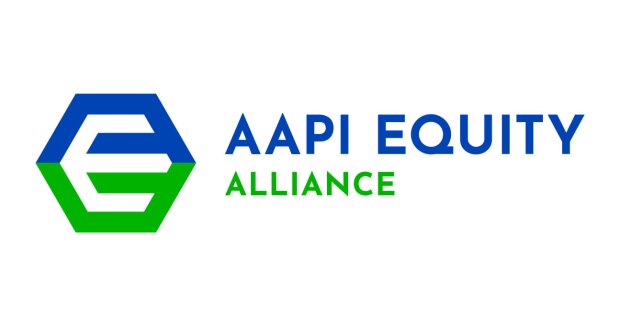 AAPI Equity Alliance is a coalition of community-based organizations advocating for the rights and needs of the Asian American and Pacific Islander community in Los Angeles County since 1976, through civic engagement, capacity building, and policy advocacy. AAPI’s policy advocacy and programming work aims to improve the economic, environmental, racial, and social justice equity of L.A.’s AAPI community.
AAPI Equity Alliance is a coalition of community-based organizations advocating for the rights and needs of the Asian American and Pacific Islander community in Los Angeles County since 1976, through civic engagement, capacity building, and policy advocacy. AAPI’s policy advocacy and programming work aims to improve the economic, environmental, racial, and social justice equity of L.A.’s AAPI community.
Through a series of listening sessions, focus groups, and trainings, AAPI Equity Alliance proposes to change systems affecting children prenatal to 5-years-old and their families in Los Angeles County by supporting its member community-based organizations who work in early childhood development in cultivating policy advocacy skills and knowledge.
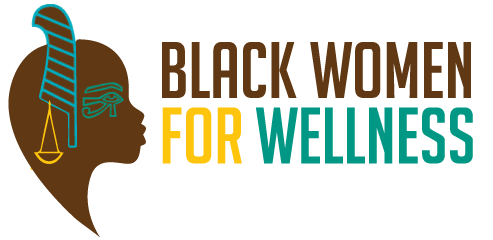
Black Women for Wellness (BWW) is committed to addressing the health and well-being of Black women, girls, and families through health education, empowerment, and advocacy. By developing partnerships and coalition-building with key stakeholders working in the healthy equity and reproductive health, justice, and rights fields, BWW ensures that the voices and lives of Black women and babies are uplifted and prioritized.
BWW has helped pass several bills that aim to mitigate health disparities faced by Black infants and their families, including the California “Momnibus” Act (SB 65) and the California Dignity in Pregnancy and Childbirth Act (SB 464), which seek to address maternal and infant mortality and morbidity rates known to disproportionately impact Black birthing people and families. BWW is focused on monitoring the implementation of these policies, in addition to informing community members about their rights during pregnancy and childbirth.
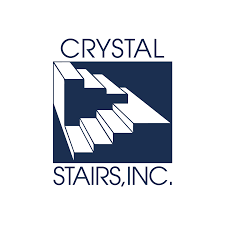 Crystal Stairs, Inc. is a Los Angeles-based nonprofit child care and development organization, founded in 1980, that promotes programs to strengthen and assist families towards reaching self-sufficiency and providing enriched lives for their young children. Through the Community Voices (CV) advocacy program, Crystal Stairs builds parent and provider leadership and advocates for children and working families through workshops, community organizing, revitalized civic engagement, advocacy events and legislative interactions.
Crystal Stairs, Inc. is a Los Angeles-based nonprofit child care and development organization, founded in 1980, that promotes programs to strengthen and assist families towards reaching self-sufficiency and providing enriched lives for their young children. Through the Community Voices (CV) advocacy program, Crystal Stairs builds parent and provider leadership and advocates for children and working families through workshops, community organizing, revitalized civic engagement, advocacy events and legislative interactions.
Crystal Stairs intends to use this funding to expand the breath and reach of the CV program to include more grassroots advocacy and policy trainings, workshops, and legislative interactions for a newly empowered and informed cadre of child care and parent leaders to ensure systems change that is inclusive, equitable, and influence policies that affect children and families.
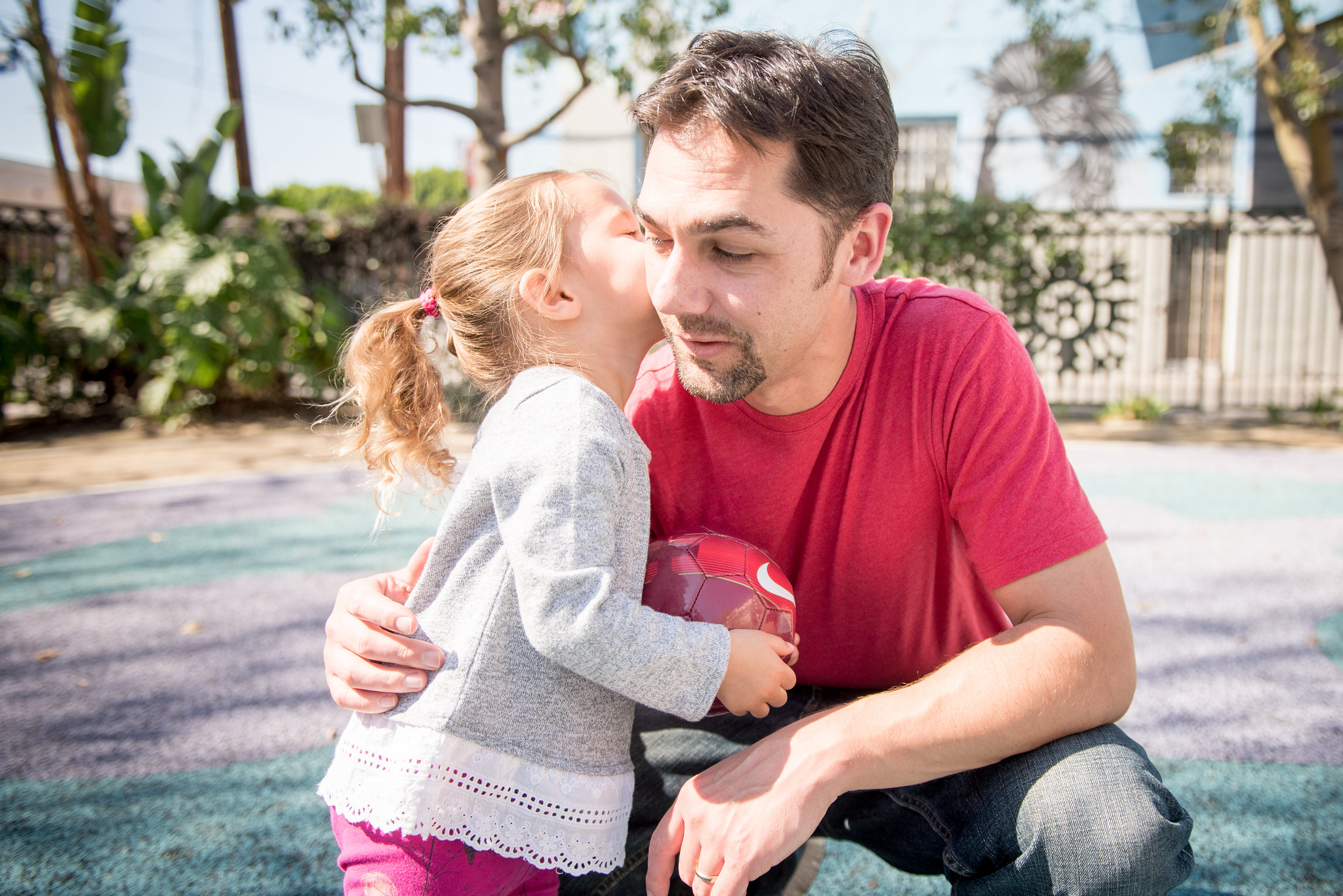
Reimagining Systems Change Fund
When the Early Childhood Policy Advocacy Fund (EC PAF) was launched in April 2023, one of the central tenets behind its creation, was the idea that it could be mobilized to provide a wide range of financial opportunities – ones that were inclusive of communities that have faced disinvestment and discrimination, and ultimately helped support a variety projects and groups engaged in developing, implementing, and improving policies, procedures, and practices that impact children and families.
While the Reimagining Systems Fund (RSF) focused on awarding grants to registered 501(c)(3)s or fiscally sponsored organizations working to change public systems and services most critical to children prenatal to 5 and their families, the Community Opportunities Flexible Fund (COFF), which began accepting applicants in July 2023, creates funding opportunities for emergent groups working in this domain and building community connections and voice.
Through the COFF, grants, stipends, contracts, honoraria, and related expenditures of $2,500–$85,000 are provided to organizations and volunteer efforts and seeks to include those with minimal experience applying for grants or funding. This fund will distribute over $2 million on a rolling basis between 2023 and 2028, subject to fund availability.
We are excited to highlight the organizations that have already been awarded funding for their projects through the Community Opportunities Flexible Fund and will regularly update this page over the lifecycle of this funding pool.
Grantee Spotlights
.

BreastfeedLA is a grassroots coalition formed in 1994 and incorporated as a not-for-profit 501(c)3 in September 2001 to address infant feeding equity in Los Angeles County and ensure that every expectant or new parent has access to information, resources, and support to feed their infant in the way they determine is safest, healthiest, and most fitting for their lives.
COFF funding will be used to support scholarships for community members, including parents, lactation advocates, and representatives from hospitals, clinics and in local government to attend BreastfeedLA’s 2023 summit, “Lactation Justice: Activating Our Community Response.” The summit aims to address infant feeding disparities and develop comprehensive strategies that promote breastfeeding equity and support for all families, including those in need of culturally specific lactation help, incarcerated parents, and detained immigrants. Following the Equity Summit, BreastfeedLA will publish a post-summit report containing recent breast/chestfeeding data and community action planning from the event, guiding their work for the next five years.
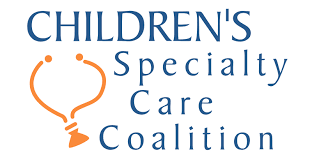
The Children’s Specialty Care Coalition (CSCC) is a nonprofit 501(c)(6) organization whose mission is to ensure that children and youth with complex health care needs have access to equitable, timely and high-quality care, provided by pediatric specialists, who are able to thrive in California’s health care environment, through strong leadership, education and advocacy.
CSCC plans to use COFF funding to build and sustain the coalition of children’s health advocates, convening bi-weekly advocacy meetings to strategize on topics like how to monitor the implementation of policies meant to improve access to quality healthcare for low-income and marginalized children, particularly those who rely on Medi-Cal and the California Children’s Services (CCS) Program. Specific areas of focus for the coalition will include California Advancing and Innovating Medi-Cal (CalAIM) implementation, continuous Medi-Cal coverage for the 0-5 population, and the distribution of the Managed Care Organization tax dollars to improve access in the Medi-Cal program.
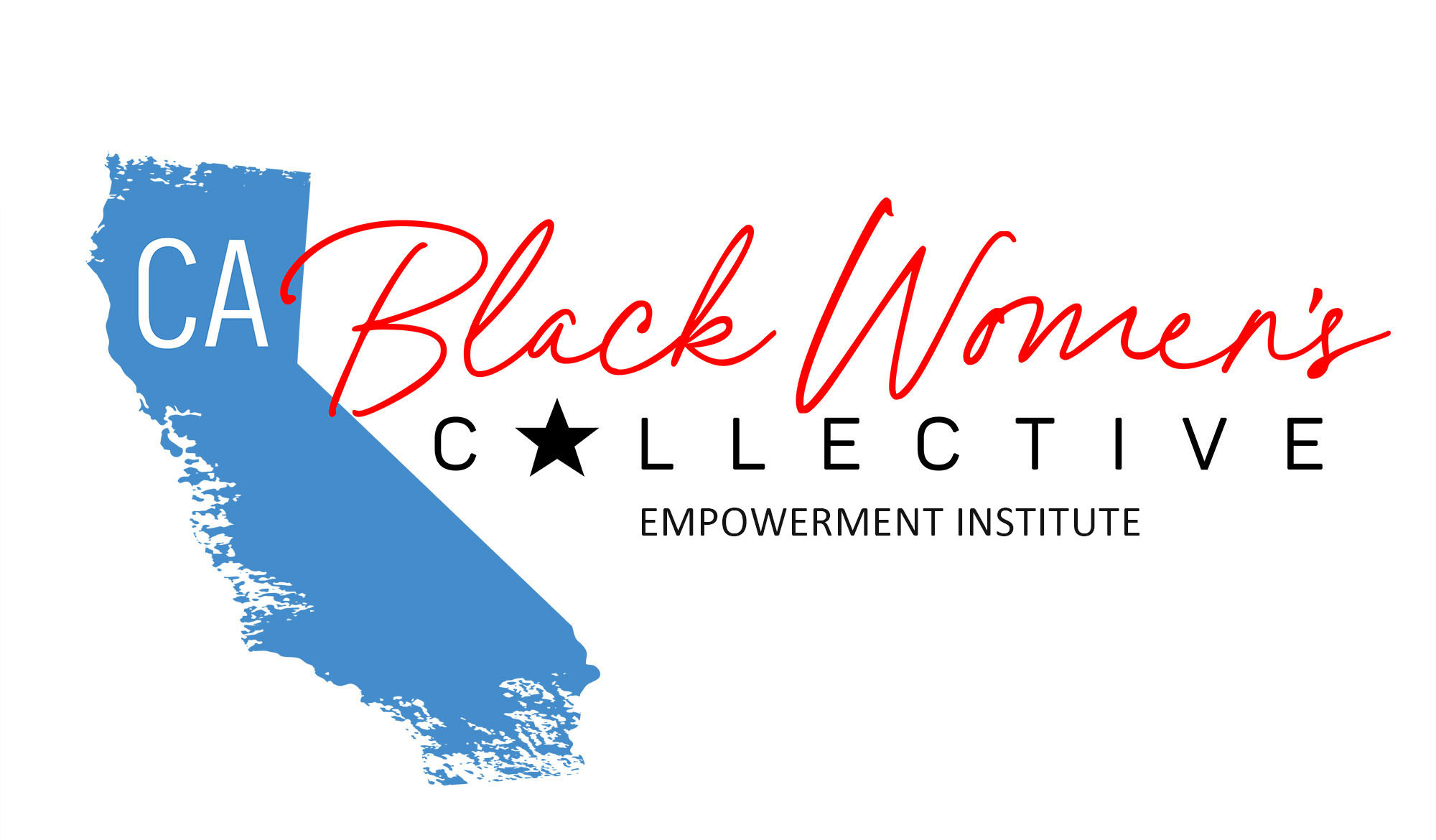
The California Black Women’s Collective Empowerment Institute, a 501C3 non-profit organization, focuses on improving the lives of Black Women and Girls throughout California. Through partnerships with corporate, social, not for profit, and advocacy entities, the Empowerment Institute develops programs and initiatives that have a meaningful impact on dismantling systemic barriers and supporting the collective power of Black Women locally and nationally to fortify the social and economic safety-net.
COFF funding will be used to support a project aiming to capture the stories of Black Mothers who have children under five as they navigate the health and social systems. This will include women from various economic and social backgrounds, recording at least twenty Black Women’s stories and experiences through interviews, focus groups, and surveys over the course of a year. The goal is to obtain qualitative data that helps shape policies based on the perspective of those who are impacted, resulting in a final product housed on the CA Black Women’s Collective website, shared on social media channels, and with policymakers at the local, state and federal levels.
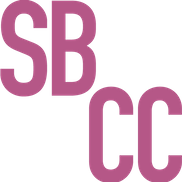
The South Bay Center for Counseling’s (SBCC) community-based doula Program, once known as Helping Hands, Loving Hearts, began as a pilot program and has been successfully supporting families since 2010. Over the years, SBCC has continued to train residents and provide no-cost doula support to the community. In 2022, the program expanded to offer support in the South Bay, South Los Angeles, and Antelope Valley’s Lake Los Angeles area.
Through COFF funding, SBCC will double their doula support team from five doulas to ten doulas. Doulas with lived experience will be trained and paired with families of similar lived experiences. Doulas will contribute to systems change by addressing disparities, providing culturally competent care, empowering and advocating for clients, educating and raising awareness, strengthening community networks, influencing policy changes, collecting data, offering mental health support, and creating sustainable change by building trust, fostering relationships, and contributing to the overall well-being of the families they serve.
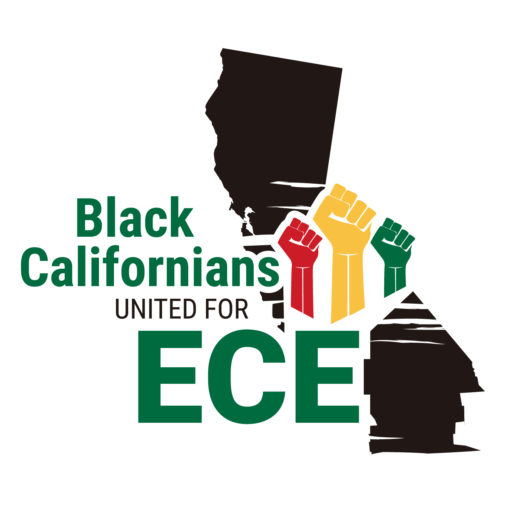
Founded in 2022, Black Californians United for Early Care and Education (BlackECE) works exclusively for Black children, families and child care workers. Guided by a policy framework developed in response to deficit-based narratives of Black children and their families, BlackECE works to ensure California’s ECE system is culturally affirming for Black children, families, and early educators, and that ECE policies and resource allocation are aligned to match this vision.
BlackECE intends to use COFF funding to support their conference, Say it Loud! Affirming Black Culture in Early Learning and Care Practice, Policy and Research, which aims to attract system leaders, policy advocates, researchers, members of the Black child care workforce, and Black families. The conference will feature panel discussions and keynote addresses that focus on BlackECE’s strategic goals: racial wage justice, cultural affirmation, and reparations, in order to build understanding around the importance of affirming Black culture in ECE work, preventing harm to Black children, families, and the child care workforce, as well as developing policies and supporting research that reflects the Black experience.

Early Edge California, formerly known as Preschool California, has been a leader and change-maker in early childhood education since 2003. Early Edge California works to ensure that children receive high-quality, linguistically and culturally responsive early care and education, enter kindergarten ready to learn, and are thriving through 3rd grade and beyond. Early Edge California focuses on access to high-quality 0-8 programs, providing supportive resources for the Early Learning and Care workforce, and supporting Dual Language Learners (DLLs) from birth to age 5, who are learning two (or more) languages at the same time, or are learning a second language while continuing to develop their first (or home) language.
COFF funding will help support the Dual Language Learning (DLL) Field-Building Project, which brings together existing and new advocacy partners from across the state with a focus in Los Angeles, working together to advance the DLL Action Plan—a set of policy priorities developed by experts in the field that builds on the California Master Plan for Early Learning and Care. The project seeks to expand the DLL-content and policy knowledge through a series of learning opportunities (including meetings and site-visits) designed to increase advocacy partners’ understanding of this population of children.
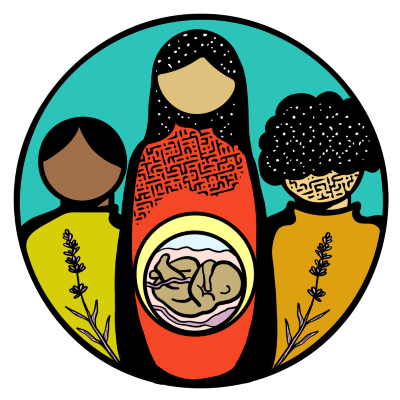 Birthworkers of Color Collective (BWOCC) is a community-based doula organization, located in Los Angeles County that conducts doula trainings for people of color, provides services, education, healing, and conducts advocacy around pregnant and postpartum individuals, their families, and communities to advance culturally relevant care.
Birthworkers of Color Collective (BWOCC) is a community-based doula organization, located in Los Angeles County that conducts doula trainings for people of color, provides services, education, healing, and conducts advocacy around pregnant and postpartum individuals, their families, and communities to advance culturally relevant care.
The COFF funding will support BWOCC in their provision of doula training to equip birthworkers to advocate on behalf of their communities, mitigate the impact of care inequities, and approach this work with a social justice framework towards creating systemic impact. The trainings offered will also include information and mentorship to become Medi-Cal providers via PAVE, and under BWOCC as a group provider, taking on the administrative burden and billing for members.
BWOCC will also host workshops and family events for the community, to combat birth disparities and promote systems change for BIPOC LGBTQIA+ communities, by helping them be informed as they navigate prenatal and pediatric care.

Comunidades indígenas en liderazgo (CIELO) is an indigenous woman-led organization that works with indigenous-migrant communities in Los Angeles. CIELO organizes to promote racial justice, with multiple approaches to addressing the various barriers faced by these communities, particularly families and children, when accessing services. CIELO organizes events and engages in dialogues on decolonizing perceptions of indigeneity, reframing indigenous identity and languages, and empowering and professionalizing indigenous interpreters who interface in public service settings.
In 2023, the LA County Board of Supervisors passed a motion to reduce language barriers faced by Central and South American indigenous families and children engaging the Department of Children and Family Services (DCFS) through robust community partnerships, enhanced data collection, cultural awareness trainings, and ongoing analyses of procedures and best practices. With COFF support, CIELO will continue to work jointly with indigenous communities residing in Los Angeles and the public institutions that they interact with, providing language access rights and cultural preservation, dealing with misconceptions, providing cultural awareness trainings, training interpreters, and providing access to vital information in indigenous languages.
Los Angeles Walks partners with historically disinvested and immigrant communities to transform their streets into safe, accessible, and vibrant environments for pedestrians.
Building on Los Angeles Walks’ previous work with Best Start Communities on issues of pedestrian safety and infrastructure through the Safe Street Promotor Educator program, which trained community leaders to understand and navigate bureaucracies and elected officials to secure infrastructure and secure positions of power through appointments, this project will aim to build a stronger cohesion amongst the promotores network and share best practices through regular convenings. The goal is to build a united voice to inform City and County agencies on programs that impact streets and infrastructure and create a more responsive government and programs.
Los Angeles Walks will hold quarterly meetings with promotores from across the Best Start Networks, sharing safe street organizing updates and best practices, and collecting data on the various safe street campaigns and contracts.
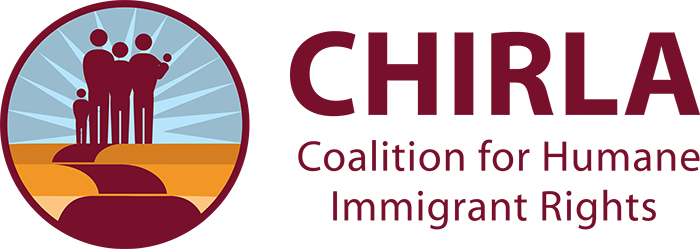
Since 1986, the Coalition for Humane Immigrant Rights (CHIRLA) has organized individuals, families, and coalitions to build power, transform public opinion, and change policies to achieve full human, civil, and labor rights, driving progressive policies aimed at supporting the long-term health and well-being of low-income immigrant families. CHIRLA’s innovative programming in community education, organizing, legal services, civic engagement, policy and advocacy, and leadership development has served immigrant communities throughout California.
CHIRLA conducts narrative change work aimed at public systems critical to children’s development, focusing on the needs of immigrant children and their families and increasing access to social safety net services.
Funds will be used to expand advocacy efforts at the local, state, and national level, enabling CHIRLA to provide leadership development and support coalition-building, to uplift the experiences of immigrants with young children (0-5), especially the needs of pregnant refugee women and unaccompanied minors. Additionally, the COFF grant will help support CHIRLA en tu Casa (Facebook Live episodes) and CHIRLA TV (a nationally syndicated show), used to disseminate information to the community on how they can get involved and the implications of policy changes.

EveryChild California is a non-profit association that provides and develops leadership and education opportunities to accelerate and enhance early investments in California’s youngest children, their caregivers, and families and to increase awareness and support for California’s robust mixed delivery system of care.
In 2022-23, $280 million in state funding was dedicated to expanding General Child Care and Development (CCTR) programs. Of the 107 programs that were awarded funds, 29 grantees were brand new to receiving a subsidy – 31% of the new grantees are based in Los Angeles County. Since the California Department of Social Services is limited in the amount of technical assistance they can provide for the new expansion CCTR funds, EveryChild California will use COFF funding to develop an intensive online training on how to run CCTR programs, how to establish a CCTR Family Child Care Home Education Networks, clarifying the differences between programs, understanding compliance and more.
Become an EC PAF Partner!
Work around the EC PAF continues with the opening of the Community Opportunities Flexible Fund (COFF) to applications. The COFF will continue to provide a broad range of grants, stipends, contracts, honoraria, and related expenditures of $2,500–$85,000 to organizations and volunteer efforts seeking to change systems affecting children prenatal to 5 and their families and build community connections. More information can be found here.
